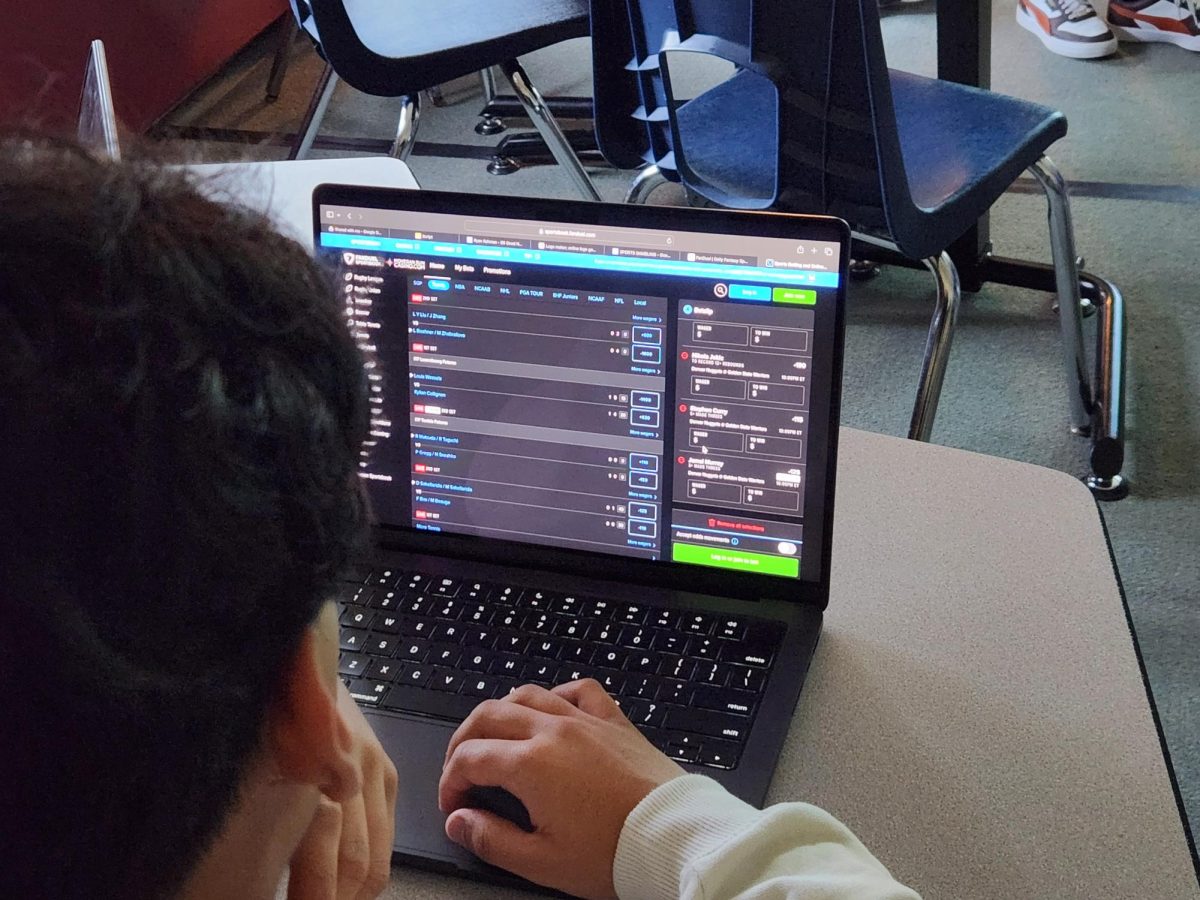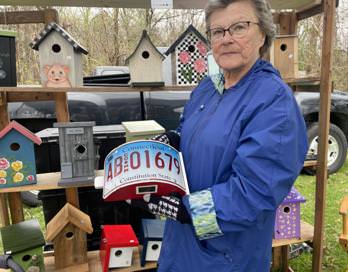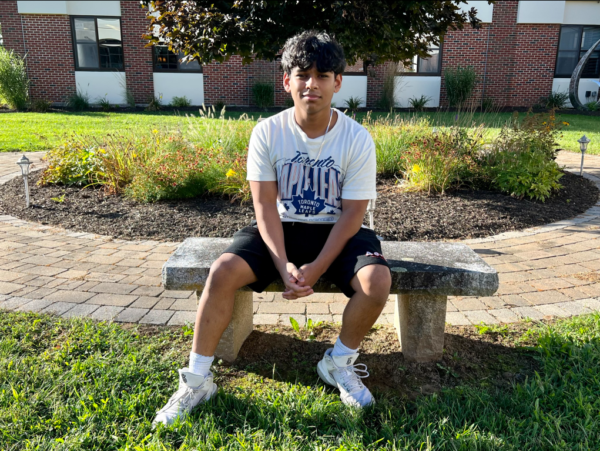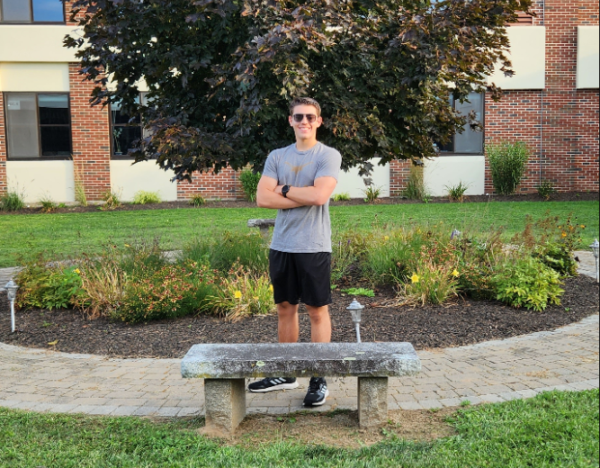Editor’s note: Given the nature of this article, all student sources have been granted anonymity to protect them from any social or legal reprisal
Amongst teens, there exists a seemingly secretive world of underground and illegal sports betting that goes relatively unnoticed. Students, growing ever more desperate to win big, pour dollar after dollar into gambling, hoping to strike it rich. While some are inevitably successful, many others lose large sums of money; it’s an addiction, one that’s spreading nationwide and to youth, including the students of South Windsor.
Sports gambling, in essence, is putting money on a team or player, trying to accurately predict what will happen similar to casino games like roulette. You pick your bet, then the rest is up to chance. All of this is conducted online, on internet sportsbooks that manage the bets and payouts, while also acting as “the house.”
According to the National Council on Problem Gambling, 60-80% of high schoolers nationwide have gambled at least once, up to 19% are at risk of a serious gambling problem, and up to 6% are actively addicted to gambling.
While the number of teens placing bets nationwide is growing, it should be noted that in the state of Connecticut, the minimum age to participate in sports gambling is 21.
“I worked my way up little by little, slowly accumulating more and more money by sports betting,” Source A, a South Windsor High School student told The Prowl. “One night I was very confident in a bet and put all my money into it, which would be fatal. I lost all my money I had taken the time to build because I got reckless.”
Gambling is a source of excitement and thrills to teens, especially with the prospect of winning money, sometimes doubling or even tripling their bank account, however, it is also very addicting and dangerous.
Evidently, students who bet often use coping terms to excuse a loss as a fluke or to justify placing a wager, saying things like “there’s no way this leg doesn’t hit,” “that bet is a lock,” or “99% of gamblers quit before hitting big.” The usage of these terms represents a spiral into addiction, as teens become hooked on the thrill of gambling and the possibility of winning big.
Unfortunately, most students don’t win big. Many lose money and then feel the need to recuperate it through continued betting.
“I started gambling because I felt it would be easy money,” Source B, a SWHS student explained. “Throughout the span of a week, I started putting hundreds of dollars into bets. If I was down money for a night, I would bet more the next to try and make up for my losses.”
If I was down money for a night, I would bet more the next to try and make up for my losses
— Source B, a SWHS student
Multiple student sources told The Prowl that they individually lost hundreds of dollars last year from online sports betting, yet continue to gamble regularly, showing a clear problem with gambling.
Gambling issues may be a “sign of a deeper thing,” SWHS counselor Mr. Peters said, but students shouldn’t be embarrassed about getting help for it, “everyone has their stuff.”
Despite the addiction risks, teens continue to gamble, and even those who don’t look forward to doing it when they’re legally allowed to.
“I personally never did sports betting, mostly because I don’t have an account to do so. However, as soon as I can, I will,” explained Source C, a SWHS student. “Sports betting gives players a similar thrill to things like fantasy, relying on their teams and players to do well in order for them to succeed.”
While many are engrossed in making bets, some students have realized the danger in underage sports gambling.
“It was unhealthy and destructive and I’m glad I quit before I got sucked into the rabbit hole,” Source B stated.
It was unhealthy and destructive and I’m glad I quit before I got sucked into the rabbit hole
— Source B, a SWHS student
For any students struggling with gambling addiction, there is help available.
The SWHS counseling department is always ready to help students struggling. Additionally, there is the National Problem Gambling Helpline, which connects people struggling with gambling to local resources, can be reached at 1-800-GAMBLER (426-2537) and is open 24/7/365.
As the underage, underground online sports betting world grows, so does the risk of gambling addiction for high school students.










